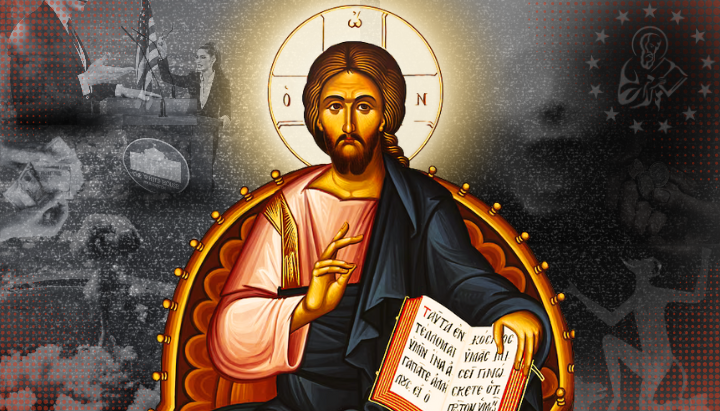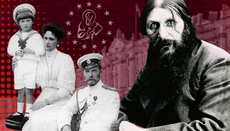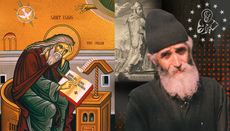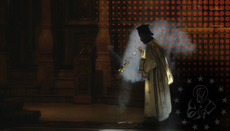The Word vs. the World

There is no longer one common word or story for man to align himself with. Instead, all views and stories of our origin and purpose are accepted as equally valid. This can be seen as nothing less than a direct rejection of truth itself. We have substituted “the Truth” for “my truth.”
“In the beginning was the word, and the word was with God, and the word was God.”
The opening sentence in John’s gospel was, in a sense, the culmination of centuries of Greek thought and philosophy which had sought to understand the first principle of all things. The Greek concept of logos has a much deeper meaning than the English equivalent “word,” but it’s a serviceable translation.
What is a word? A word is something which provides context and value to an experienced phenomenon. To provide meaning to the world around us, we attribute words: sounds of speech to correlate to the things we experience in order to communicate the reality in which we live in.
When we say that Christ is the Word, then, we’re saying that He is the ultimate context in which all of reality is to be understood. Without a name, a thing cannot be known, and for the Greeks, the Logos was a concept developed to represent the first principle of all things. For the Christian, this first principle was not an abstraction, but a person. Without Christ, the Logos, the meaning of life is left to be defined.
This idea of the necessity to name a thing to understand it is played out in the early chapters of Genesis. As man begins to familiarize himself with the creation God made for him, he begins to name the animals. Each name gives the world more meaning and context, as well as solidifies man’s given dominion over it. Each word given was to represent man’s observance of the natural world and further ingrain his place and role in it, as well as construct a web of meaning for him to make sense of his environment. This capability is unique to man and is often referred to as his rationality. Reason is what separates man from the rest of creation, and is what is often thought of as giving us the image of the creator Himself. As God created the world with reason—another possible translation of logos—mankind participates in this creation by naming, shaping, and stewarding it.
We can think back to the earliest passage of Genesis in which God speaks the world into existence. The word comes first, and the universe is shaped by it. While God alone creates with His word ex nihilo, man imitates this by creating a world unique to himself through the use of this God given rationality. The creative act is primarily a product of man’s development of language, as language is a map to the surrounding world. The more things are named, the greater man’s understanding of the world is.
You can often tell the dominance of a civilization by how prevalent and robust its language is. It is no wonder how the inheritors of this concept of logos, and its fulfillment in the incarnate Logos—Jesus Christ—went on to spread this message to all the world, reshaping it where they went. It is also no coincidence that the development of law, science, and mathematics also followed. The codification of languages, written histories, and theology, all flowered out of this very deep root and centuries of meditation on the Word of God.
The Word of God provided the nations of the Earth a true basis for unification and cooperation. As Christianity spread throughout the world, the world itself became more interconnected. While each nation maintains customs relative to itself, they are also unified in the virtues as they each allow God’s Word to transform and perfect them. This is most easily seen in the spread of churches all over the world, but also in the establishment and spread of universities.
The idea of the university is that there was one truth and one shared story of mankind in which we were not only to further our understanding of the world, but also receive an inherited and established view of mankind’s purpose, which had always fit within a Christian context. However, as is prevalent today, man began to question the validity of a single truth. It is no coincidence that, as we began to reject this view, the universe (or “one-verse”) slowly began to slip into more and more “diverse” views, culminating in the even more modern theory of the multiverse.
There is no longer one common word or story for man to align himself with. Instead, all views and stories of our origin and purpose are accepted as equally valid. This can be seen as nothing less than a direct rejection of truth itself. We have substituted “the Truth” for “my truth.”
This departure has permeated every aspect of human life, from law to politics, the arts, and even relationships. Monarchs and constitutions are overthrown or ignored for increasingly democratic means of governance. Previously held axioms of morality are thrown out in favor of more subjective claims. Standards of beauty are reinterpreted to the point that we have no standard at all. Perhaps most destructive is the forsaking of monogamous relationships towards promiscuity and polyamory.
In every aspect, unity and objectivity are replaced with increasingly fractured subjectivity and multiplicity. We no longer operate in a world which adheres to a common Word but rather considers all words of all people equally, which, in effect, is not to consider them at all. Each voice thinks of itself as the first principle rather than conforming to one outside itself. This is the surest manifestation of individual pride, the primary sin and cause of all others.
Of all the maladies that plague modernity, the over saturation of voices and opinions on all manner of topics is most stifling. There is too much noise, noise which distracts and brings a paralysis of meaningful action as there is always more information to seek, more “voices” to consult. We are being smothered by an ever-increasing body of opinions with no way of arbitrating which one is true. A civilization founded on the Word is being choked by words.
With new voices comes a new reality—like a siren song leading a ship astray. There will be wars over words as different opinions seek to establish a new reality. Things will be renamed to declare a transfer of dominion over it. Your use or failure to use certain words will betray your allegiance.
The old world is little by little being chipped away. A new civilization is being constructed. Not one based on truth, but on anti-truth. Not one with unity in Christ, but a false unity based on rejecting Him. Without repentance, this rejection will lead mankind down a path toward the only thing that can unite the world apart from Christ, and that is of anti-Christ. Let this not cause fear but inspire boldness to uphold the truth once established for all ages. We know in this world we will have trouble. But take heart! The Word has overcome the world.









